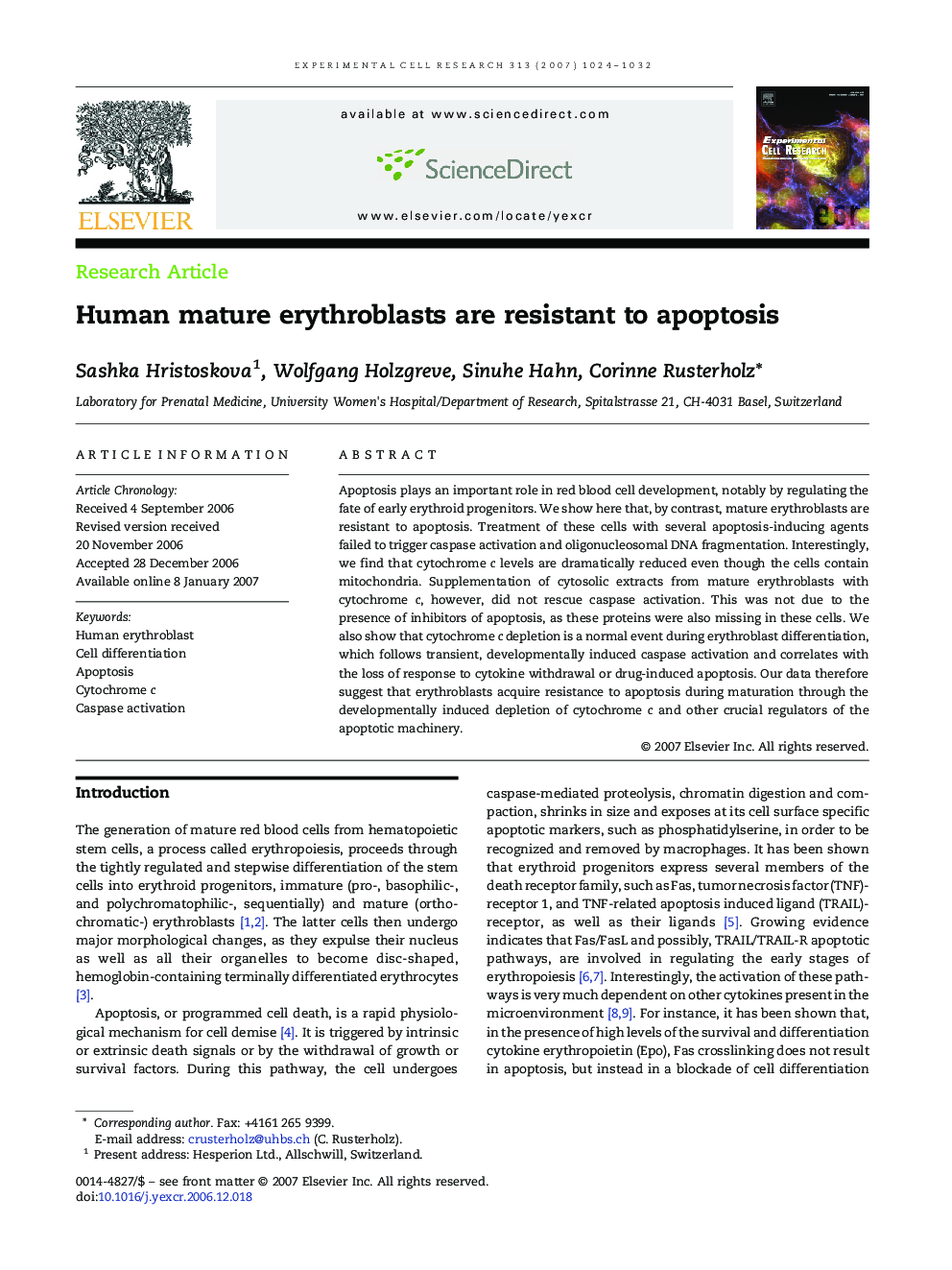| Article ID | Journal | Published Year | Pages | File Type |
|---|---|---|---|---|
| 2132753 | Experimental Cell Research | 2007 | 9 Pages |
Apoptosis plays an important role in red blood cell development, notably by regulating the fate of early erythroid progenitors. We show here that, by contrast, mature erythroblasts are resistant to apoptosis. Treatment of these cells with several apoptosis-inducing agents failed to trigger caspase activation and oligonucleosomal DNA fragmentation. Interestingly, we find that cytochrome c levels are dramatically reduced even though the cells contain mitochondria. Supplementation of cytosolic extracts from mature erythroblasts with cytochrome c, however, did not rescue caspase activation. This was not due to the presence of inhibitors of apoptosis, as these proteins were also missing in these cells. We also show that cytochrome c depletion is a normal event during erythroblast differentiation, which follows transient, developmentally induced caspase activation and correlates with the loss of response to cytokine withdrawal or drug-induced apoptosis. Our data therefore suggest that erythroblasts acquire resistance to apoptosis during maturation through the developmentally induced depletion of cytochrome c and other crucial regulators of the apoptotic machinery.
